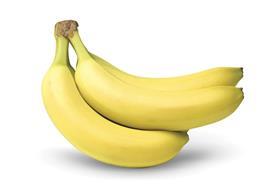
The Department of Agriculture has held the practice of pole-vaulting, or trading of bananas outside of the usual farmer-exporter contracts, responsible for contributing to the South East Asian nation's current exporting issues with countries such as China, reports GMA Network.
According to a statement released by DA Secretary Proceso Alcala during the Mindanao Banana Congress in Davao City, on 7-8 November, pole-vaulting has become so prevalent and so damaging to the banana export industry that Alcala has ordered stricter protocols in the accreditation of banana exporters.
If left unregulated, industry insiders predict that the practice could eventually destroy the banana export industry altogether.
Pole-vaulting, according to Francisco Espinel of FedCo, a banana co-operative based in Mindanao, began in 2005 at the peak of the fresh banana export industry and occurred as a result of an increased demand in bananas during January to May coinciding with an decline in production for farmers in the same period.
Contracts between banana exporters and farmers/producers, last between three and five years on average, and obligate both parties to use each other's services during this time, for a fixed price, irrespective of demand.
In order to meet the export demand, some spot buyers would try enticing farmers to break or short change their contracts in exchange for selling their produce, regardless of the quality, at a higher price.
Fernando Betonio senior, also from FedCo, explained that, although pole-vaulting may seem legal, it hurts the industry in more ways than one. For one thing, most of the spot buyers are not accredited by the Department of Agriculture, which has lead to reports of banana farmers and producers being cheated and subsequently losing their contracts with legitimate buyers.
Furthermore, some of the legitimate buyers themselves are sometimes forced to resort to pole-vaulting when their contract farms fail to deliver the required volume, creating mistrust between the two parties.
The spot buyers often don’t have the facilities to ensure the appropriate storage and handling of bananas after harvesting, which often results in having some substandard batches of produce being exported. The near-closure of the Chinese market earlier this year has been cited as a result of concerns over the phytosanitary health of Philippine banana imports.
To control the problem, aside from a more stringent exporter accreditation policy, the Bureau of Plant Industry's Plant Quarantine Service (BPI-PGS) has been tasked with tracking down pole-vaulters and continuously monitoring growers' harvest information to validate the volume of exports from ports all over the country.
Additionally, only buyers with validated volumes of bananas will be approved to export.



